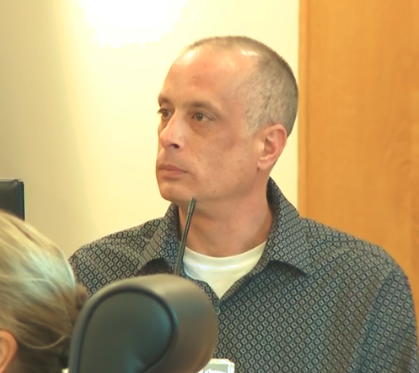Harold Turner, PE is a business owner who lives and works in Concord. He is also a Board Member of the Granite Institute, a 501(c) 3 registered economic think tank based in New Hampshire that works to ensure every family thrives with high quality education choices, an entrepreneurial business climate, and taking care of our elderly.
By Harold Turner, PE
Fact: On June 19, 2018 Gov. Sununu vetoed SB446 and SB365, two NH energy bills crafted to 1) expand self-generation for larger businesses and municipalities in NH and 2) to keep existing biomass fueled power plants operating in NH………both of which passed the NH House and NH Senate with strong bi-partisan support.
Fact: On March 19, 2018 Gov. Sununu sent a letter to Senate President Chuck Morse and Senate Majority Leader Jeb Bradley, prior to the initial hearing of the bill in the Senate, stating that if they passed SB365, he would veto it.
Fact: Throughout the entire process of hearings in the House and Senate for SB446, neither the Governor nor his staff nor the NH Office of Strategic Initiatives would make any comment on the bill, other than it was being “monitored”.
Fact: On June 13, 2018, sixteen (16) State Senators signed and delivered a letter to Gov. Sununu, in a bi-partisan way, and urged him to sign both bills.
Neither one of these bills passed the legislature without first undergoing major changes from their original filings. In the end, SB446 excluded any participation from plants larger than 5MW, which then excluded all existing biomass and trash-to-energy plants in NH. In the end, SB365 eliminated all other existing plants not powered by biomass or trash, and the bill now sunsets after 3 years without further legislative action. Both bills were thoroughly vetted, and received large bi-partisan approval in both legislative branches.
SB446 was not without its controversy, as twice Rep. Michael Harrington (a Board Member of, and consultant to NERA-New England Ratepayers Association) attempted to amend the bill on the House floor to lower the compensation rates for energy placed on the local distribution company’s system to “wholesale” power rates (which are ISO-NE rates). Other powerful people, like former Speaker Bill O’Brien (a registered lobbyist for EEI -Edison Electric Institute) and Grover Norquist (President of Americans for Tax Reform), weighed in at the House to support Rep. Harrington’s amendment, but not a public word from the Governor’s office. In the end, the Harrington amendment was wisely defeated, and the final bill passed on a voice vote.
There is quite a bit of history in NH surrounding NERA’s attempts to see net metering rates (used in SB446) set to “wholesale rates”. During the 2017 NHPUC hearings (DE 16-576) on the re-setting of net metering rates, Rep. Harrington and Michael Sununu (Newfields, NH Selectman), both representing NERA, tag teamed to testify and advocate for “wholesale rates”. Marc Brown, NERA’s Executive Director from Newfields, NH, has testified and written extensively for several years advocating for “wholesale rates” for net metering projects, and in support of Northern Pass and new gas pipelines.
As early as April 5, 2015, Dave Solomon penned a story in the Union Leader titled: “Lawmakers Want to Know Who is Financing NERA”. As a 501(c) 4 organization, NERA has no legal responsibility to neither reveal its funding sources nor disclose its “members”. However, it has been speculated by many for years that NERA is actually funded by investor owned utility interests, based upon the timing of its creation in 2013 just prior to the Northern Pass route release, and their clearly slanted advocacy efforts against renewables and for transmission lines and pipelines.
Governor Sununu’s vetoes were simply wrong on the merits and wrong on the facts. His written statement that SB446 “would cost ratepayers at least $5 to $10 million annually” is without factual evidence and was not estimated by any state agency. SB446, championed by prime sponsor Senator Kevin Avard, will in fact save money for ratepayers and taxpayers, and there are no subsidies or cost shifting. Under SB446, the investments in self-generation projects will provide additional power, keep our energy dollars in the state, drive economic activity, support jobs, and increase state and local business tax and property tax revenues.
His assertion that SB365, which pegs biomass powered supply payment rates at only 80% of default service supply rates, “would cost ratepayers approximately $25 million a year for the next 3 years”, overstates the numbers that the state Legislative Budget Assistant estimated of “$15million to $20 million a year for Eversource and $2.7 million for Unitil”, which in itself completely ignored millions in off-setting costs as testified by experts during the Senate hearing.
Expert testimony concluded that if NH lost 100 MW of biomass power, the State’s ratepayers would be responsible for approximately $17million in additional regional capacity costs – annually and forever. And finally, the Governor erroneously wrote that “Senate Bill 365 doesn’t even guarantee solvency of these facilities”..…..”and those who supply the wood product have confirmed that the maximum impact to their revenue would be a mere 3.5%”. The industry and suppliers have stated publicly that SB 365 makes them viable to continue operation.
What is also ignored by the veto is the annual economic impact of the biomass plants which was the subject of an economic study by Plymouth State University in 2016. The plants support over $250 million in annual economic activity statewide and over 900 jobs. They also pay state taxes, local property taxes, air permit fees, etc. Finally, the energy policy in SB 365 is critical to NH’s natural resource policies promoting and protecting healthy and sustainable forests.
These economic benefits far outweigh the real 3-year cost of SB 365. These vetoes are especially unfortunate, coming after his “long-time friend and confidant” and Co-Chair of his transition team, Jamie Burnett’s, recent designation as a registered lobbyist for Eversource…….a company who strongly opposes these bills, and who has a history (aka-Northern Pass) of providing less than accurate information to support their own energy agenda.
How did we come to such an impasse? I believe the Governor was ill informed prior to making his decision to veto these important bills that would have done much to stabilize the NH economy, offer larger businesses and municipalities the opportunity to save money on energy, and economically support the very important North Country of NH ……the heart of our recreational and tourism industry.
However, we are all capable of making bad decisions using bad information, so I will give him a pass on these bills. Unfortunately, the Governor can’t later decide to reverse his own vetoes. The legislature worked hard on these bills. Therefore, our Legislators will need to overlook “politics” in an election year and simply vote to override the vetoes in September. I especially urge my conservative republican colleagues in the House to move past their prior amendment battles and to get on board and vote for these bills.
Harold Turner, PE is a business owner who lives and works in Concord. He is also a Board Member of the Granite Institute, a 501(c) 3 registered economic think tank based in New Hampshire.
Views expressed in columns and opinion pieces are those of the author and do not reflect those of InDepthNH.org.





